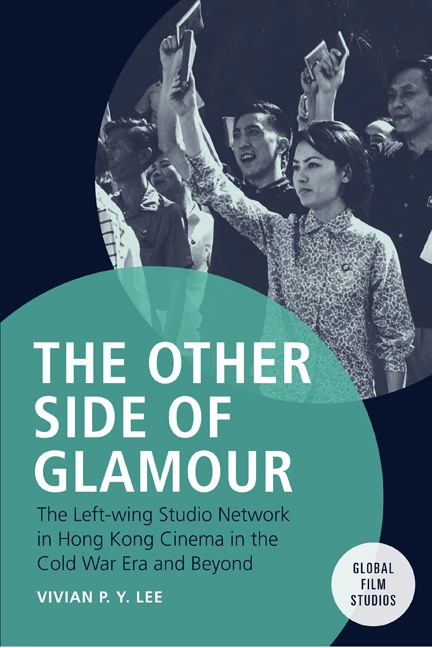 The Other Side of Glamour
The Other Side of Glamour Book contents
- Frontmatter
- Cotents
- List of Figures
- Acknowledgments
- A Note on the Timeline
- Timeline
- Dedication
- 1 Introduction
- 1 The Left-Wing Film Apparatus in Postwar Hong Kong
- 2 Left in the Right Way: Corporate Strategy and the Making of a Popular left-wing
- 3 Remaking Cantonese Film Culture: Union and Sun Luen
- 4 Class, Gender, and Modern Womanhood: Feng Huang and Great Wall
- 5 Corporate Repositioning, Transnational Cultural Brokerage, and Soft Power: Sil-Metropole
- 6 Critical Transitions on the Non-Left: Patrick Lung and Cecile Tang
- 7 From Political Alibis to Creative Incubators: the Left-Wing Film network since the 1980s
- Epilogue
- Bibliography
- Filmography
- Index
7 - From Political Alibis to Creative Incubators: the Left-Wing Film network since the 1980s
Published online by Cambridge University Press: 17 September 2020
- Frontmatter
- Cotents
- List of Figures
- Acknowledgments
- A Note on the Timeline
- Timeline
- Dedication
- 1 Introduction
- 1 The Left-Wing Film Apparatus in Postwar Hong Kong
- 2 Left in the Right Way: Corporate Strategy and the Making of a Popular left-wing
- 3 Remaking Cantonese Film Culture: Union and Sun Luen
- 4 Class, Gender, and Modern Womanhood: Feng Huang and Great Wall
- 5 Corporate Repositioning, Transnational Cultural Brokerage, and Soft Power: Sil-Metropole
- 6 Critical Transitions on the Non-Left: Patrick Lung and Cecile Tang
- 7 From Political Alibis to Creative Incubators: the Left-Wing Film network since the 1980s
- Epilogue
- Bibliography
- Filmography
- Index
Summary
In Chapters 5 and 6, the nuanced legacies of the classical left-wing cinema are delineated through the corporate history of Sil-Metropole as a cultural broker between Hong Kong and Mainland China, and the careers of Patrick Lung and Cecile Tang as critical transitions in the late 1960s and 1970s. Seen as cultural agents seeking to renegotiate a space to advance their interests in response to the changing parameters of local and national politics, their middling roles are defined against a combination of institutional, industrial, and volitional factors. The rapid expansion and internationalization of Hong Kong cinema in the 1980s and the emergence of new rivals that challenged the preeminence of Shaw and Golden Harvest brought in the so-called “golden age” of Hong Kong cinema. As a film enterprise mediating between institutional objectives and commercial interests, Sil-Metropole did not reap immediate harvest in the industry boom. As suggested in Chapter 5, its influence on the Hong Kong film industry goes well beyond box office takings at a particular cross-section of time. This chapter turns to another arena where the reconfigured left-wing film network mobilized its economic and institutional resources in cultivating a niche cinema that would have a lasting impact on Hong Kong's arthouse cinema, which came of age with the arrival of the Hong Kong New Wave in the late 1970s. In an attempt to further diversify its output and discover new talents, the realigned left-wing film network extended horizontally through smaller satellite studios. From production strategies to partnership cultivation, one discerns a consistent eff ort in engaging younger filmmakers to incubate less commercially oriented projects inspired by local experience and perspectives.
Presented below are some underarticulated subcurrents in the development of left-wing film production in the post-Cold War, post-Cultural Revolution era. A brief overview of satellite studios during the 1950s and 1960s serves as the immediate background to the developments since the late 1970s, when the left-wing film network entered a more experimental stage in terms of talent-grooming and creative incubation.
- Type
- Chapter
- Information
- The Other Side of GlamourThe Left-wing Studio Network in Hong Kong Cinema in the Cold War Era and Beyond, pp. 132 - 149Publisher: Edinburgh University PressPrint publication year: 2020


